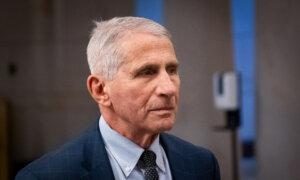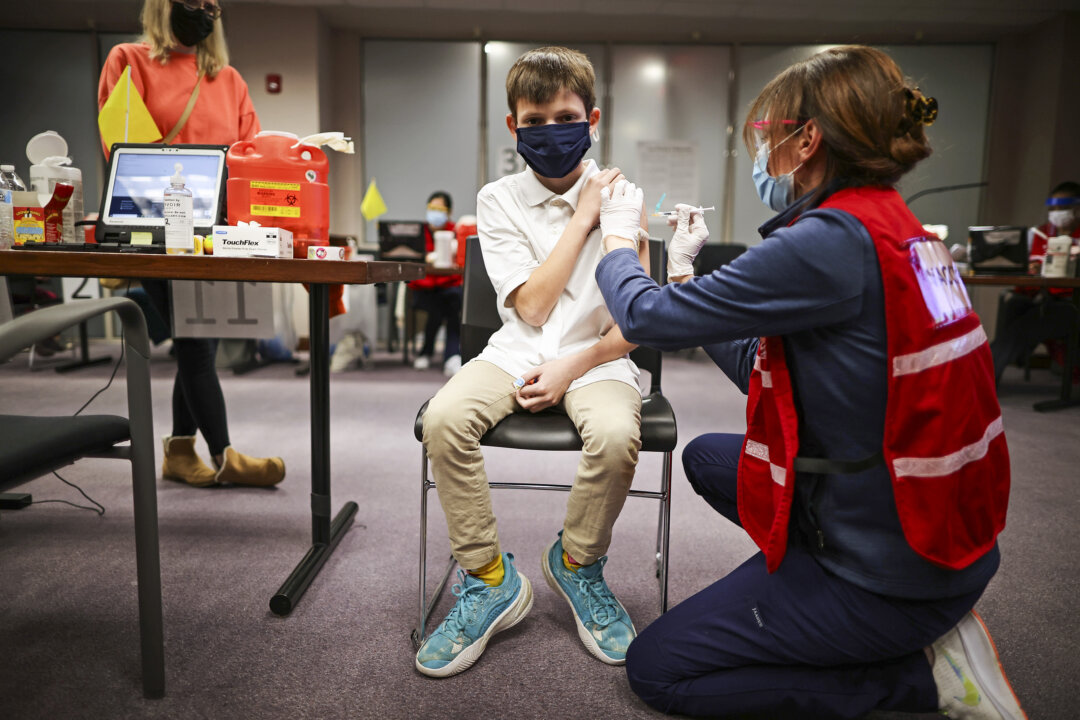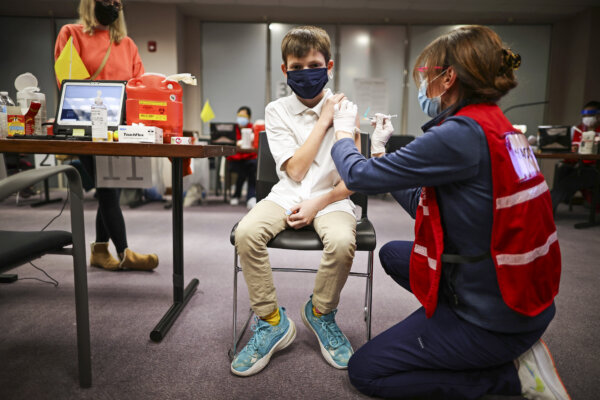Number of Health Care Personnel Recommending COVID Shots Has ‘Decreased Substantially’ Since 2021: Study
Health care workers who did not take COVID-19 vaccines were ‘far less likely to recommend vaccinating to their patients,’ the study said.
The share of health care personnel recommending COVID-19 jabs and other vaccines to patients has declined significantly in recent years, with overall trust in the U.S. Centers for Disease Control and Prevention (CDC) declining, according to a recent study.
In addition, trust in the CDC “decreased [from 79 to 73 percent], as did support for HCP COVID-19 vaccine mandates [from 65 to 46 percent].”
“This is concerning as HCP have long been the most frequently used and credible source of vaccine information, especially given public suspicion of vaccine information from pharmaceutical companies and government, and encouragement from HCP is strongly associated with patients vaccinating against COVID-19,” said the study.
Researchers found that health care personnel not vaccinated against COVID-19 were “far less likely to recommend vaccinating to their patients.” And even in the case of vaccinated personnel, they required regularly updated resources “to confidently discuss vaccines with hesitant patients.”
Study Participants
The study was conducted among 1,207 participants made up of four types of health care personnel—pediatricians; family medicine doctors; physicians assistants, nurse practitioners, and nurses; and pharmacists. Almost all personnel (96 percent) had received at least one COVID-19 vaccine, with 82 percent taking booster shots.
The most frequently boosted personnel were pediatricians, followed by family medicine doctors, pharmacists, and nurses. Almost three-quarters of respondents had high trust in the CDC, which was found to be critical with regard to receiving COVID-19 vaccines.
“Most HCP with high trust in CDC [90 percent] were boosted, compared to [61 percent] of HCP with low trust in CDC,” the study said, adding that those with high trust in the CDC were nearly six times as likely to be boosted compared to those with low trust in the CDC.
Among those surveyed, 46 percent supported COVID-19 vaccine mandates for health care personnel, with supporters observed to be much more frequent among the boosted population. Among the 218 health care personnel who had not yet taken the booster shot, the most common reason was concern about side effects, with 44 percent citing this issue.
Other major reasons cited included the speed of vaccine development and approval (27 percent), low risk of infection (27 percent), and discomfort with the Emergency Use Authorization (24 percent).
Over half the personnel said that a key challenge to vaccinating patients against COVID-19 was the concern raised by the patients. Sixty-four percent pointed to patient concerns about the necessity of vaccines, 60 percent to the safety, and 54 percent about the effectiveness of the jabs.
Health care personnel who had received booster shots recommended three brands of COVID-19 vaccines more frequently than those who had not been boosted: Pfizer-BioNTech (38 percent of boosted versus 12 percent not boosted), Moderna (46 percent versus 11 percent), and Johnson & Johnson (8 percent versus 2 percent).
The study was conducted by five researchers based in the United States, out of which four declared competing interests.
Two of them received research support from Merck, with one serving on the advisory boards of Merck, Janssen, Sanofi, and Moderna. Both received funding from the Vaccination Confidence Fund, which is jointly funded by Facebook and Merck.
Vaccine Mandates for Health Care Workers
Health care workers were subjected to rigorous COVID-19 rules during the pandemic. In 2021, the Centers for Medicare & Medicaid Services (CMS) issued a rule mandating all American health care workers be vaccinated, which applied to about 76,000 health care providers covering roughly 17 million workers.
Health care workers protested the mandate. The Pennsylvania Health Care Association warned that the Biden administration’s proposal had the “potential to exacerbate an existing workforce crisis and jeopardize access to care for tens of thousands of vulnerable residents.”
“After seventeen months of providing tireless care at the epicenter of the COVID-19 pandemic, long-term care continues to face a troubling trend of federal and state governments threatening and punishing the same healthcare heroes they once supported and rallied behind,” it stated.
“The adverse effects associated with the Pfizer vaccine were significantly more prevalent in females than in males. Following the first dose, the participants experienced more adverse effects with the AstraZeneca vaccine. Following the second dose, more adverse effects were associated with the Pfizer vaccine,” it stated.
Another study among health care workers published in February 2024 found that 84.6 percent suffered at least one side effect after the first dose of a COVID-19 vaccine. Some of these side effects included headaches, muscle pain, and chills.
“Knowing someone who experienced a health problem following COVID-19 injection reduced the likelihood of injection,” the study stated. Such individuals “were more likely to oppose injection mandates and passports.”
Among those who were aware of at least one person who experienced COVID-19 injection adverse events, they said they knew about 57 deaths following vaccination.
“The health issues reported ranged from serious problems such as cardiac arrests and other heart-related problems, blood clots and other circulatory problems, to neurological issues, as well as milder effects such as feeling sick, headache, fever, etc.”
This article has been archived for your research. The original version from Epoch Times can be found here.






